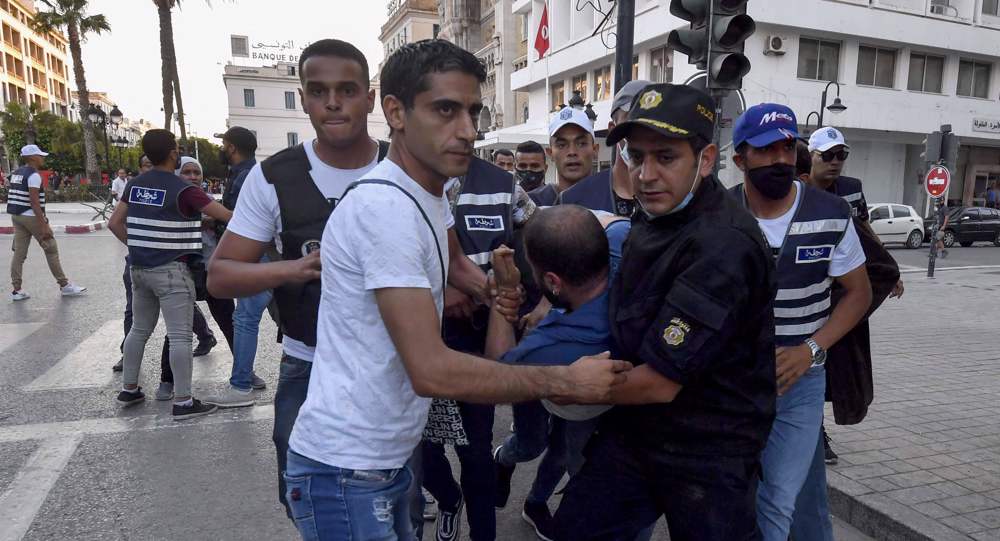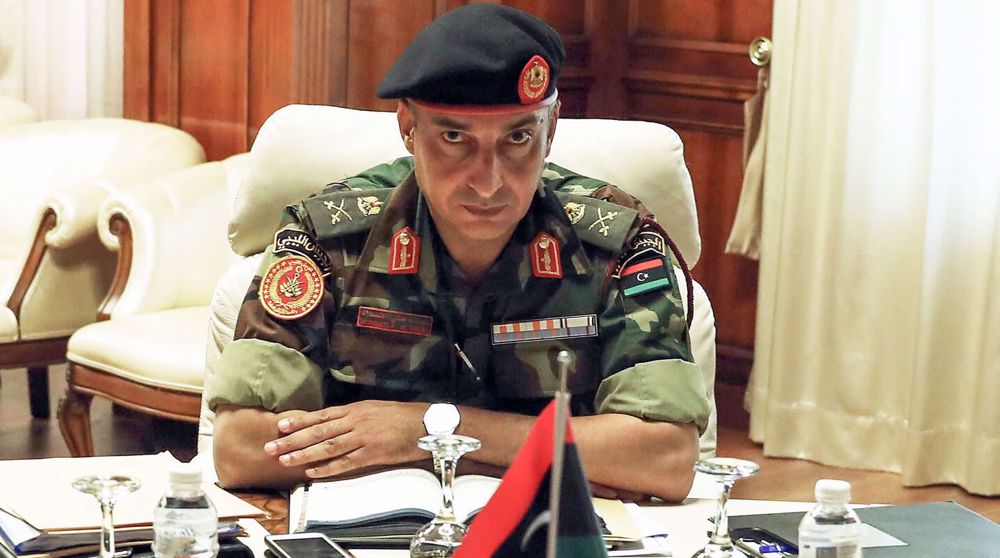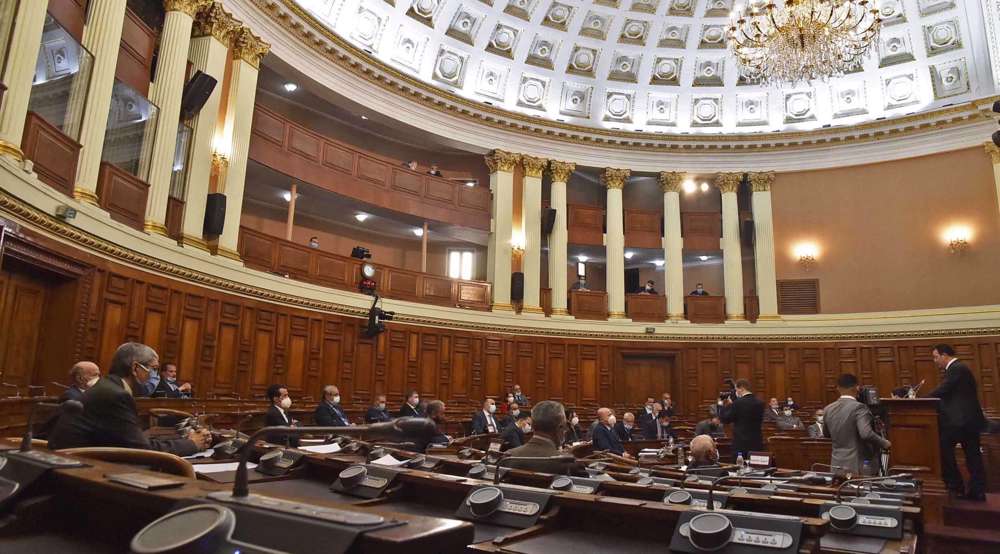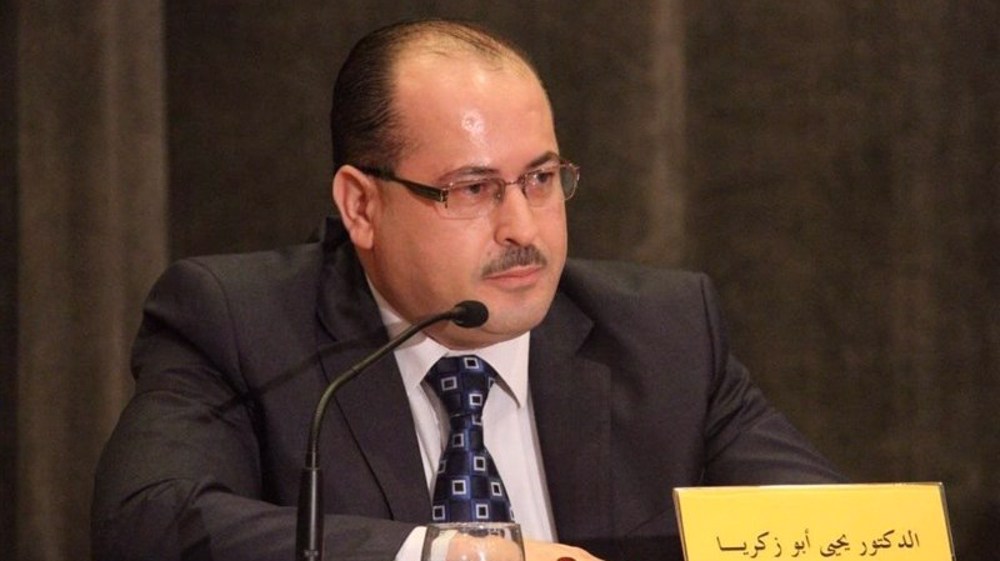UN rights office concerned about serious human rights violations by Tunisian police
The United Nations human rights office in Tunisia says it is concerned about the Tunisian police's "serious and repeated" acts of violation amid violent protests in the capital.
In a statement on Monday, the UN human rights office said the "serious and repeated violations since the beginning of the year reveal continuing dysfunctions within the internal security services."
Violent protests erupted in the Tunisian capital after a video went viral of what appears to be four plain-clothes police officers stripping and beating a minor on the street.
On Saturday night, clashes occurred in the Sejoumi neighborhood of Tunis following protests earlier in the day in the city center.
The video provoked criticism from political parties, local human rights organizations and President Kais Saied. Prime Minister Hichem Mechichi said the officers involved were arrested and the incident was unacceptable.
The widespread circulation of the video also triggered outrage on social media across Tunisia. The footage showed police officers stripping the youth's clothes in Sejoumi, violently attacking him, and dragging him along a public road.
Tunisia's interior ministry has denied the allegation.
Protests have been occurring in Tunisia since mid-January 2021. During the protests, the police arrested more than 2,000 people, most of them minors, while human rights organizations said that hundreds of them were subjected to ill treatment and torture.
The interior ministry rejected that the violations are a systematic policy of the ministry, saying they are individual. It also noted that it had launched a program to reform the security apparatus years ago.
Last week, a man died few hours after he was arrested by police on suspicion of dealing drugs. Although the family accused the police of beating him to death, Tunisia's interior ministry has denied the claim.
The first round of protests on January 14 coincided with the 10th anniversary of the fall of President Ben Ali’s regime. Ali’s removal was the outcome of an intense struggle courageously waged by the masses. On December 17, 2010, Mohamed Bouazizi - a Tunisian street vendor - set himself on fire following yet another instance of harassment and humiliation at the hands of local police and municipal officials.
A decade after a revolution against poverty, injustice and police state, Tunisia has managed to make progress towards democracy but its economic problems have worsened which sparked repeated protests.
Human rights activists believe that police abuses have threatened to undermine the democratic gains made since the overthrow of Ben Ali's repressive regime.
VIDEO | Press TV's news headlines
VIDEO | Education in War: Untold stories of Gaza students
Venezuelan president, wife taken to New York following kidnapping
VIDEO | Pakistan sees decline in attacks after Afghanistan border closure
VIDEO | Yemen’s Hadramout facing tensions after Saudi strikes
US kidnapping of Venezuela’s president ‘clear instance of state terrorism’: FM
‘Maduro our only president; no empire will rule us’: Venezuela vows resistance after US kidnapping
VIDEO | Press TV's news headlines











 This makes it easy to access the Press TV website
This makes it easy to access the Press TV website